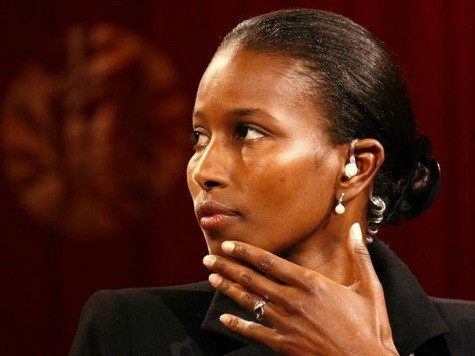Ayaan Hirsi Ali, an ex-Muslim activist and prolific author, has released a new book titled Heretic: Why Islam Needs a Reformation, where she discusses strategies on how to fundamentally transform Islam as a whole for the better.
Ali, who renounced Islam and now lives under constant protection due to fatwas that demand her assassination, talked to the New York Post about her new title.
“The assumption is that, in Islam, there are a few rotten apples, not the entire basket. I’m saying it’s the entire basket,” Ali stressed, in calling for a revolution within Islam similar to the Protestant Reformation.
The Heretic author, who spent her early childhood in Somalia and was brought up in other African countries, witnessed life under Islamic rule firsthand. In 1992, she escaped to Netherlands, following her renouncement of Islam and declaration that she was an atheist.
In most Muslim majority nations, apostasy from Islam is punishable by death.
Ali said:
If you are a child brought up to believe that Islam is a source of morality … the Muslim framework presents you with the Quran and the hijab. I don’t want to be cruel and say, “You grow up and snap out of it.” But maybe we who have snapped out of it have not done our best to appeal to those still in it.
In the book, Ali says that the majority of Muslims refuse to “challenge the Quran,” the New York Post writes. They also neglect to fight for the rights of women and LGBT individuals or stand up against jihadists who claim to commit violent acts in the name of the religion, she adds.
Ali opines, “I think we’re in a time now where we demand answers from Muslims and say, ‘Whose side are you on?’”
She asserts that Muslims need to reject five tenets in the Islamic faith to save and reform the religion: Muslims must first and foremost reject Islam’s Muhammad as a perfect figure and not interpret the Quran literally. Ali’s reform model also demands they reject the idea that the next life is more important than their earthly one. Thirdly, Muslims must reject the primitive Sharia law system in the Quran. Fourth, they must not use force against one another to promote their ideals. Lastly, the principle of Jihad, or holy war, must not be recognized as legitimate.
“The biggest obstacle to change within the Muslim world is precisely its suppression of the sort of critical thinking I am attempting here,” Ali tells the Post, in recognizing how difficult it would be to execute the reforms she posits.

COMMENTS
Please let us know if you're having issues with commenting.